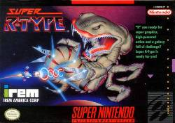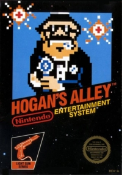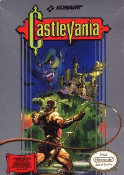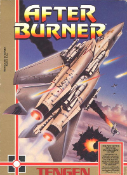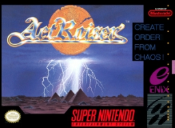May the Force be with you
The early R-Type series was one of the biggest icons during the shoot ‘em up genre’s younger years. After the success of the original arcade game, Irem followed up with R-Type II in 1989. It featured slightly prettier graphics, more power-ups, and an upgraded wave cannon. Two years later in 1991, the game was remade as Super R-Type for the Super Nintendo-- one of the first games for the system.
Training Day
I knew very little about Hogan’s Alley back in its heyday. Judging by the mean-looking gangster fully armed with a gun and grimace on the front cover, I figured that the game must have been some 3D action title featuring all sorts of wanton violence that my impressionable mind just couldn’t handle. However, as the years passed I eventually learned the facts of this game’s less menacing purpose.
Tecmo Ninja
When I hear the word "ninja", one thing immediately comes to mind- the 80's. It was an era that was very friendly to ninja culture and the kids that embraced it. Meanwhile, video game developers where busy cooking up games of the same nature in the arcades. Tecmo was one of those developers, and in 1988, they released a brawler of sorts called Ninja Gaiden. A year later, they ported the game over to the NES, but changed the style of gameplay to better fit the style of home console gaming. They replaced the "beat 'em up" theme with a simple action/platformer approach with a bigger emphasis on well-timed jumps and using awesome ninja skills. Tecmo also added a deeper story and a new way to tell it.
Stalk the Night
For years, the story of Count Dracula has been told many times over, with different spins on how he wrecked havoc on human society and such things. I dare say that there isn't a person on Earth who hasn't heard of the guy...at some point in their lifetime. So given the popularity of this character, it was only natural that Dracula would find a new life on the NES. And sure enough, in 1987, Konami released Castlevania-- a game that featured a whip-wielding hero on a mission to defend the local townsfolk and stop Dracula's bite for good, or so he hoped.
Broken wings
Life is full of surprises. Good or bad, they come when you least expect it and can potentially change your life forever. Such was the case when Sega released After Burner in the arcade. Coming complete with a hydraulic sit-down cabinet, the game was the first of its kind to successfully take the boredom out of flight simulations. There were no worries about instrument panels, altimeter gauges, or landing sequences. A short while after its arcade debut, the game went on to be ported to a number of home consoles, including the Sega Master System. Sega’s fledgling franchise was such a big hit, that it even saw a release on the NES. Wait…what?! Surpriiiise! That’s probably what Tengen said once their unlicensed version of After Burner hit store shelves for Nintendo’s own console.
Playing God never felt this ethical.
By the time the Super Nintendo was introduced, games that combined multiple genres were nothing new. Games like The Legend of Zelda, Crystalis, and The Guardian Legend were outstanding pioneers of the action/adventure variety. But developer Quintet partnered with Enix to publish ActRaiser in 1991 on the Super NES. Released just 3 months after the new home console, it was one of the earliest post-launch SNES games. Particularly outstanding is that it combines side-scrolling action with building simulation gameplay elements. Usually, building simulations send me running for the hills because I'm terrible at them. But after spending a little time with the game, I was able to put my fears aside.


